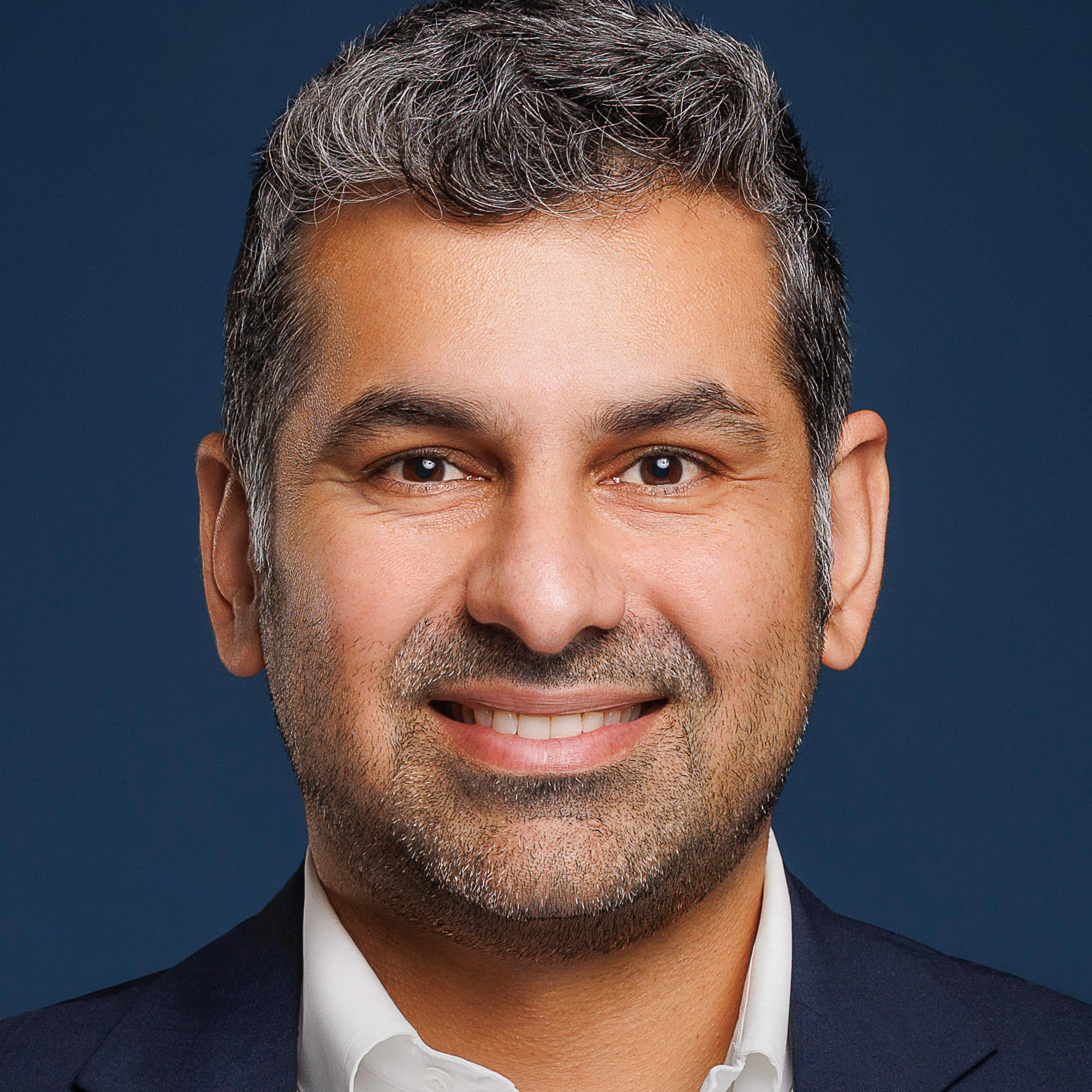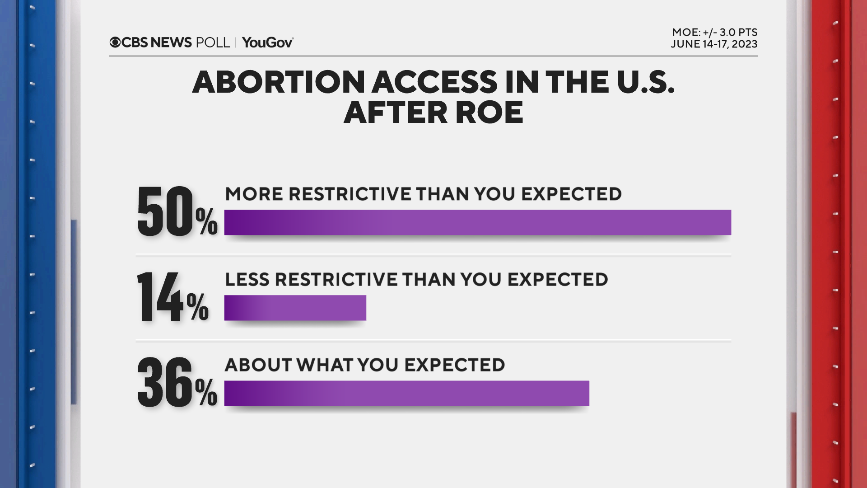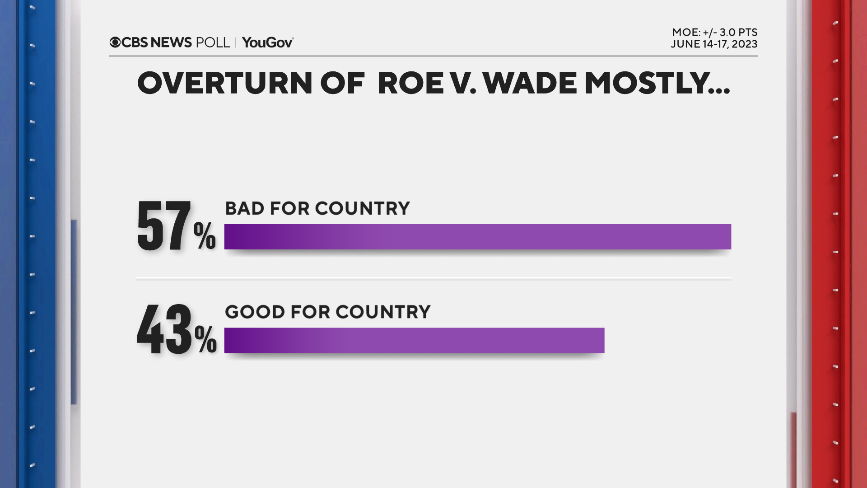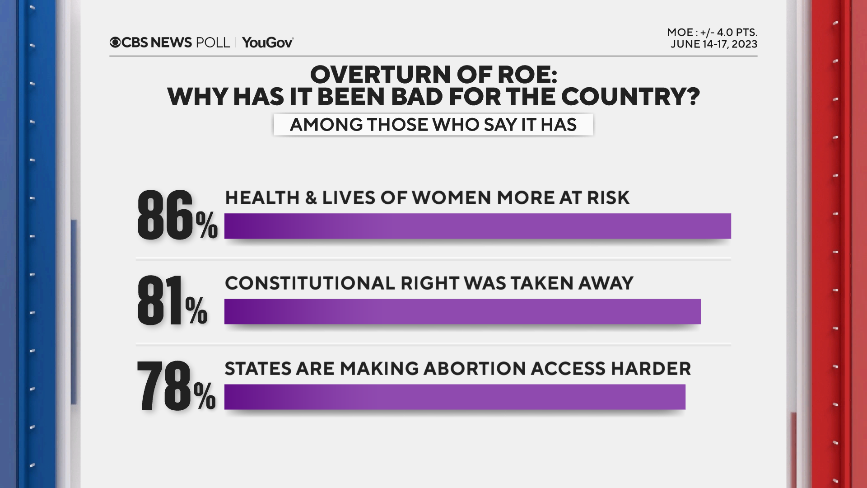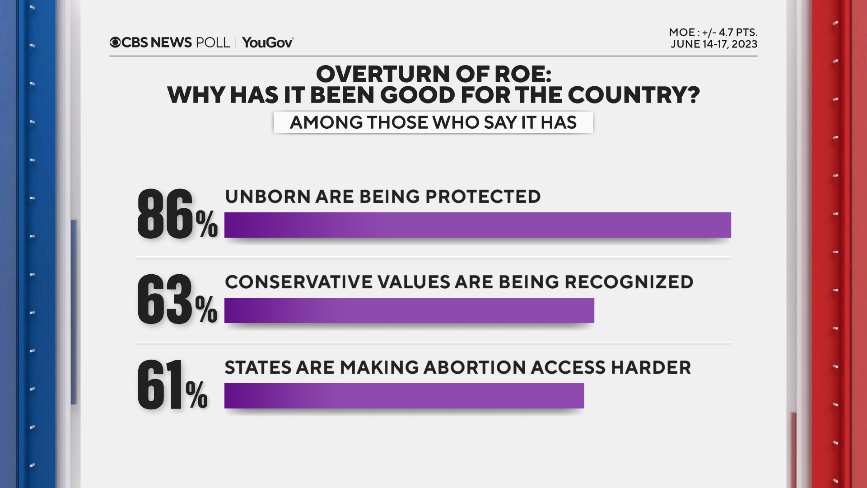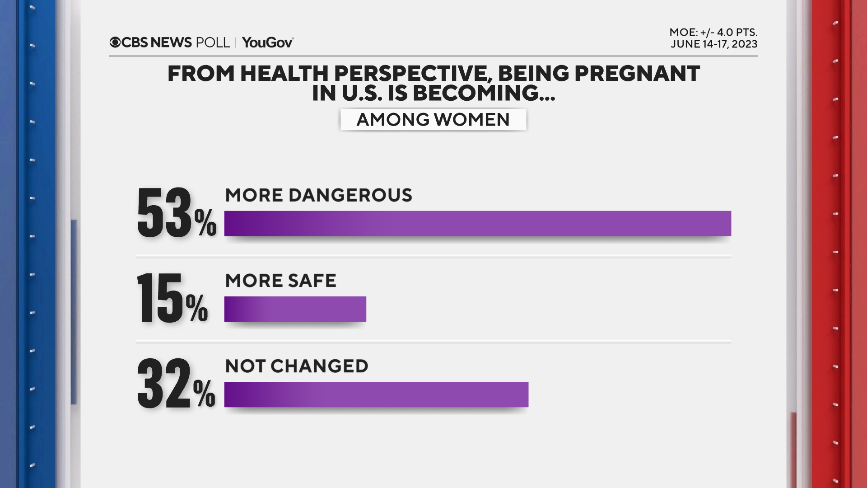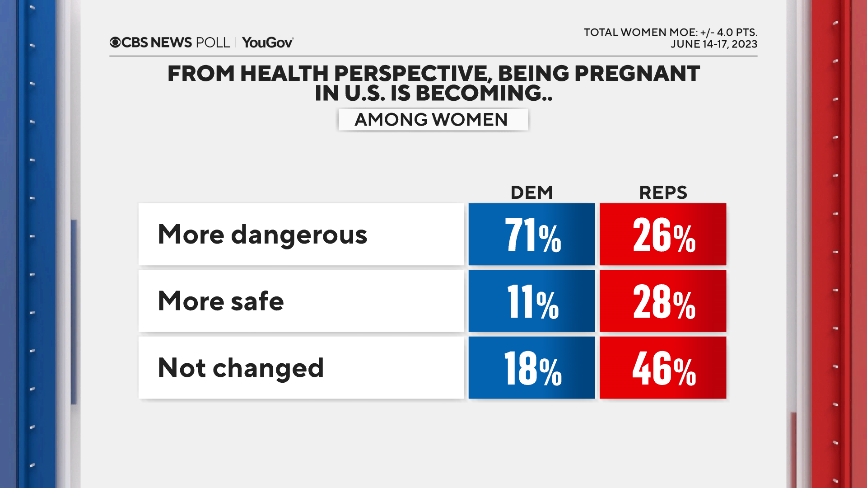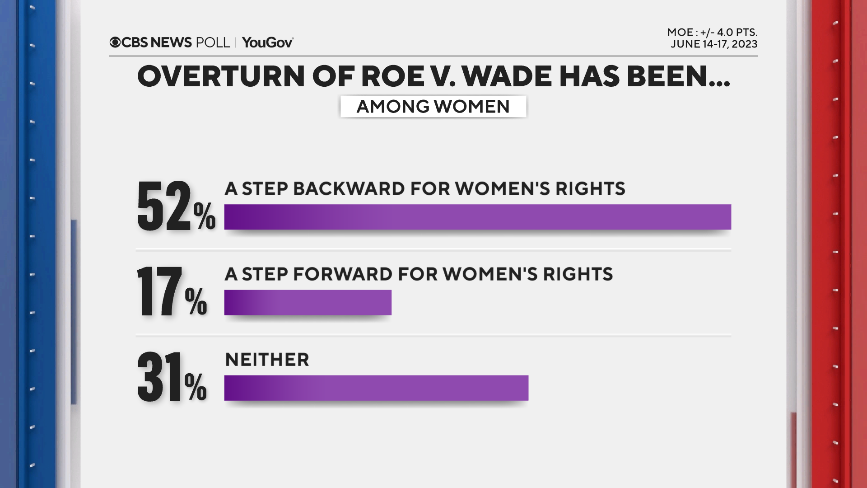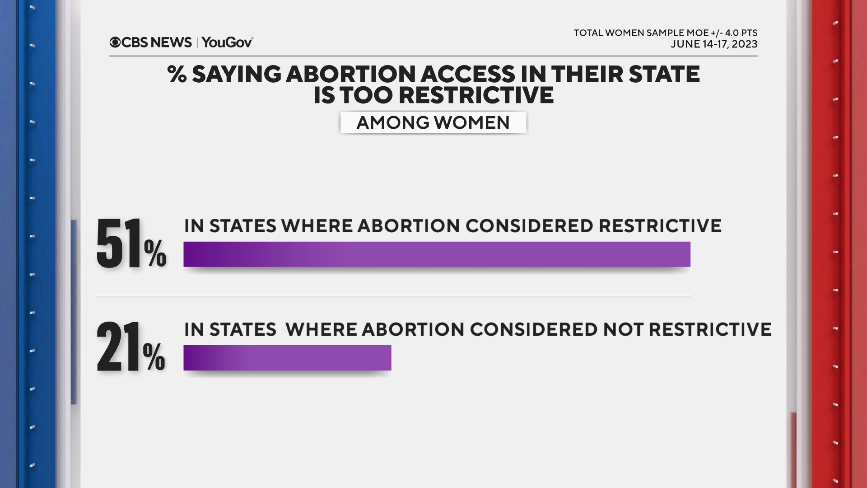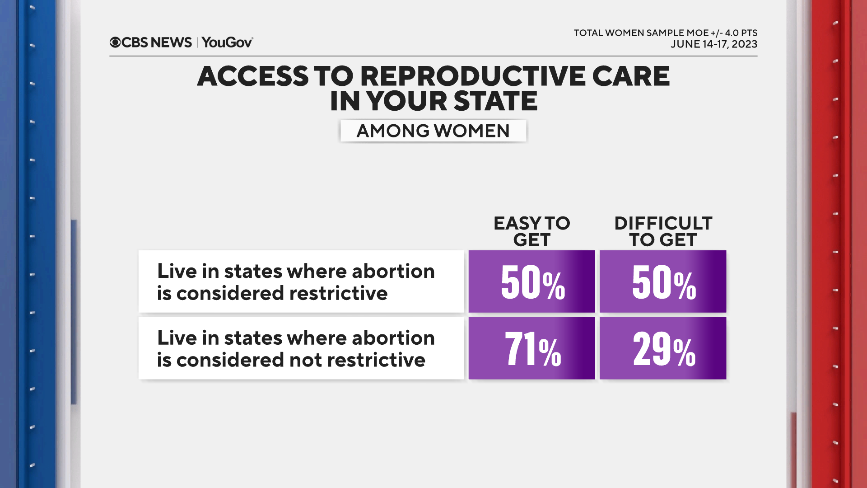CBS News poll finds most say Roe's overturn has been bad for country, half say abortion has been more restricted than expected
How do people feel about what's happened in the year since the landmark abortion law Roe v. Wade was overturned?
When Roe v. Wade was struck down a year ago, most Americans disapproved, and today, most feel that decision turned out to be a bad thing for the country generally, because they feel an increased threat to women's health and rights. Half tell CBS News that abortion access in the U.S. has become more restricted over the past year than they expected.
Last spring, those who opposed overturning Roe felt doing so would be a danger to women and a threat to people's rights, and many say some of their fears are now being realized.
Women — 6 in 10 of whom disapprove of the Supreme Court's decision to overturn Roe — feel that decision has not only been an infringement on women's rights, but also a threat to women's health: More than half of women think being pregnant in the U.S. today is becoming more dangerous from a health care perspective.
There remain a sizable number of Americans who feel differently about the end of Roe and what's happened since. Majorities of groups who have long been less supportive of abortion rights — Republicans, conservatives, and evangelicals — feel the overturn of Roe has been good for the country.
Those who feel the overturn of Roe is a good thing primarily choose "the unborn are being protected" as a reason why. Most also feel "conservative values are being recognized."
Majorities on each side of the Roe debate cite "states are making abortion access harder" as a reason for their views, indicating that states' actions can be either a negative and a positive, depending on how you feel about Roe's overturn.
Women: Rights and reproductive health
A year after Roe's overturn, many women see challenges and obstacles for women related to reproductive health.
Women's views, like the public's overall, are tied to partisanship as well as their opinions on abortion and the overturn of Roe.
Democratic women and those who feel Roe's overturn has been bad for the country particularly express concern: most of them think being pregnant in the U.S., from a health care perspective, is growing more dangerous, and that it is growing harder to access to reproductive care. Far fewer Republican women hold these views.
More broadly, by 3 to 1, women overall see the overturn of Roe as a step backward, not forward, for women's rights.
Inside the states
The Dobbs decision sent the legality of the abortion issue to the states, and people's views about abortion access in their state is related to where they live.
Among women who live in states with abortion policies that are considered restrictive, 51% say abortion in their state is now more restricted than they would like it to be — 30 points higher than women who live in states with what are considered less restrictive policies.
And about half of women in states with what are considered more restrictive abortion laws say if they needed reproductive care it would be at least somewhat difficult to get.
As we see with views on abortion more generally, it is Democrats in these states more than Republicans who feel these restrictions have gone too far.
This CBS News/YouGov survey was conducted with a nationally representative sample of 2,145 U.S. adult residents interviewed between June 14-17, 2023. The sample was weighted according to gender, age, race, and education based on the U.S. Census American Community Survey and Current Population Survey, as well as past vote. The margin of error is ±3.0 points.
For purposes of this analysis, states that have abortion policies that are considered "restrictive" and "not restrictive" are based on data compiled by the Guttmacher institute.

